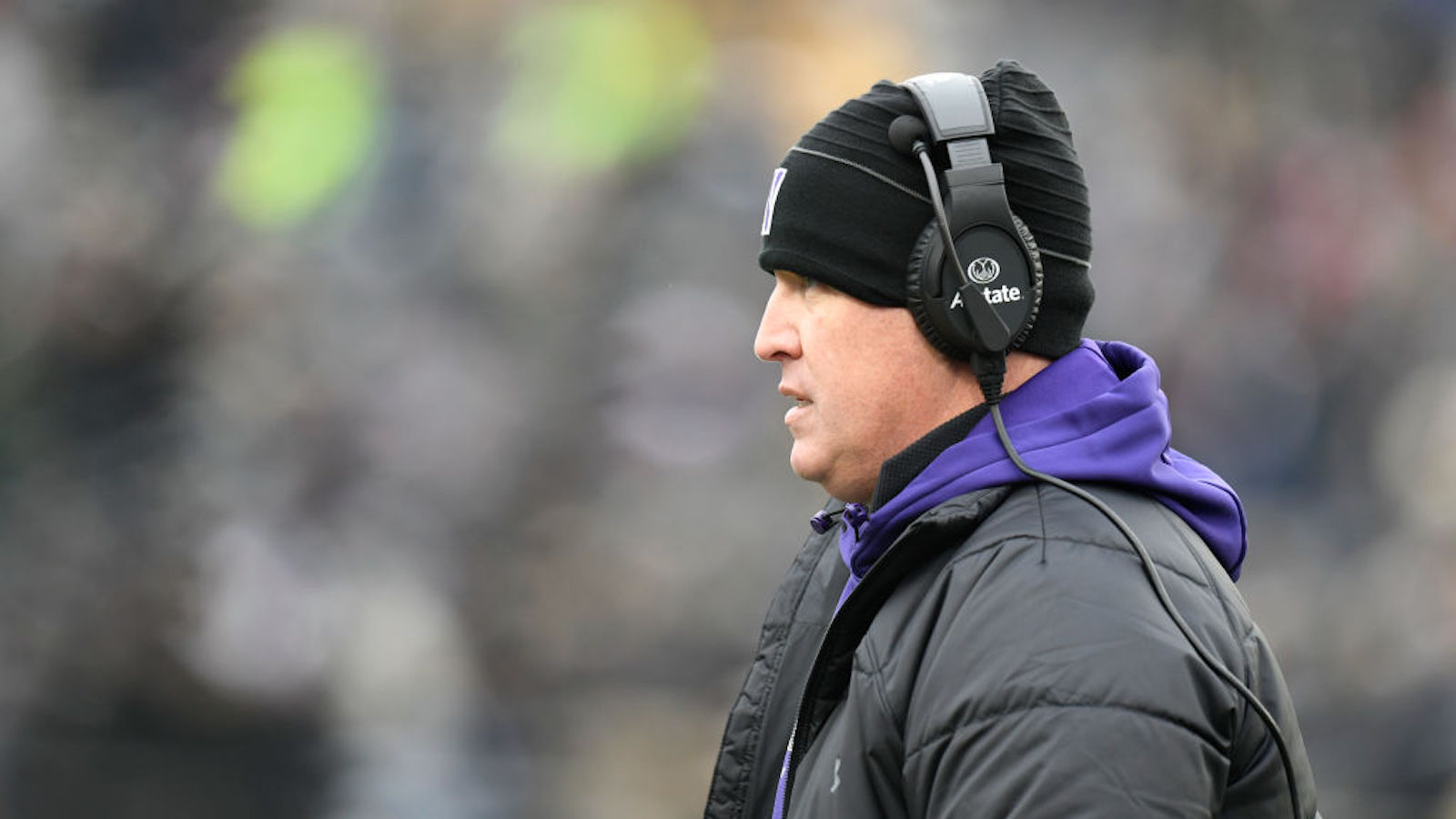This time two weeks ago, Northwestern University president Michael Schill probably did not anticipate that he and his administration would find themselves caught up in the prominent and humiliating hazing scandal that it's become. On July 7, Schill announced that head football coach Pat Fitzgerald would be suspended for two weeks following a university investigation into allegations of hazing on the football team. The lightness of the punishment and the concision of the investigation's executive summary was meant to signal that nothing too scandalous was discovered. Just some light hazing, folks! Fitzgerald was definitely not aware of anything! Nothing to see here! But that rosy picture was dispelled almost immediately, and things have only gotten uglier.
Just a day after announcing Fitzgerald's suspension, Schill found himself writing a letter to Northwestern students and alumni admitting that he may have made a mistake in letting Fitzgerald off so light, and would reconsider the football coach's punishment. That letter was spurred by the hazing investigation's original whistleblower going to The Daily Northwestern and making public all the details that the investigation's executive summary elided. Two days later, Fitzgerald was fired. If Schill thought that would finally calm things down, he was once again mistaken.
Northwestern is now facing legal threats from former athletes. This week, an anonymous former player who says he was on the team from 2018 to 2022 filed a lawsuit against the university that named Fitzgerald, Schill, and athletic director Derrick Gragg as defendants. The suit claims that the school's leadership was negligent in its failure to prevent hazing in the locker room. The attorneys who filed the suit told ESPN that they represent a larger group of former Northwestern athletes and have spoken to roughly a dozen athletes who played at Northwestern over the last 15 years.
A second lawsuit is being prepared by civil rights attorney Ben Crump, who represents a different group of former Northwestern athletes who say they were subjected to hazing. At a press conference on Wednesday, Crump announced plans to file a lawsuit against the university on behalf of 15 former athletes his firm currently represents. He also claimed that the culture of hazing at Northwestern was also present on both the baseball and softball teams. (Last week, Northwestern announced the sudden firing of baseball coach Jim Foster.)
Lloyd Yates, who played quarterback at Northwestern from 2015 to 2017, is one of the players being represented by Crump. He spoke at Wednesday's press conference and said that Northwestern's football coaches had to have known about the hazing that was taking place. From ESPN:
"I find it hard to believe that [coaches] were not aware of what was taking place," Lloyd Yates, a quarterback at Northwestern from 2015 to 2017, said during Wednesday's news conference. "A lot of coaches took part in it in many different manners, and the explicit behavior was so explicit. It was loud. It took place in close proximity to where a lot of the staff, trainers were located. It's kind of hard to take a blind eye."
ESPN
Meanwhile, The Athletic published a report this morning about the history and evolution of hazing at Northwestern's football program. Reporters Kalyn Kahler and Brian Hamilton spoke to 21 former Northwestern players and personnel who provided accounts of how hazing rituals developed slowly over time at the team's annual offseason training camp in Kenosha, Wisconsin. The report traces a line from the crude hijinks that occurred at that camp in the '90s and early aughts to the sexually violent hazing that more recent players say they experienced. “There’s a significance to ritual and going through a struggle with teammates in Kenosha,” one former player told The Athletic. “I can see the through-lines and how it transformed to the things that are described now.”
Fitzgerald, through his attorney, has repeatedly denied that he had any knowledge of the hazing incidents that were taking place on his team. Schill, meanwhile, has tried to beat back the bad press and lawsuits by announcing that the school is commissioning not one, but two independent reviews of its athletic department, and that the findings of both reviews will be made public, unlike the results of the initial investigation that resulted in Fitzgerald's suspension.
All of these developments, which have arrived one after the other at head-spinning speed over the last two weeks, serve to increase the volume of questions being asked about the university's initial handling of the hazing allegations. It seems unlikely that the whistleblower presented a different story to the school's investigators than he did to The Daily Northwestern, which leaves Schill with a lot to answer for. The whiplash in Schill's response—his reaction when the hazing allegations were made in private compared to when they became a public scandal—provides a tidy lesson about the nature of powerful institutions and their inability to police themselves. Had the whistleblower not shared his story with the student paper, it's highly likely that Schill's life would be much more tranquil and that Fitzgerald would be making plans for his return to the team. Sometimes you've got to blow that whistle where everyone can hear it, if you want anyone to face actual consequences.






